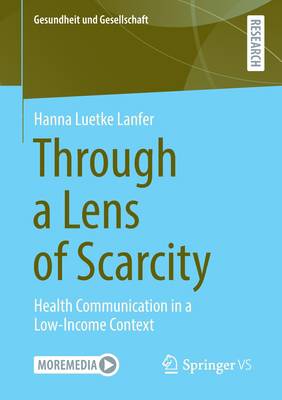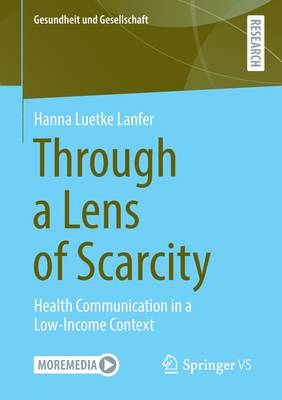
- Afhalen na 1 uur in een winkel met voorraad
- Gratis thuislevering in België vanaf € 30
- Ruim aanbod met 7 miljoen producten
- Afhalen na 1 uur in een winkel met voorraad
- Gratis thuislevering in België vanaf € 30
- Ruim aanbod met 7 miljoen producten
Zoeken
€ 152,95
+ 305 punten
Omschrijving
The conditions for strategic health communication campaigns as a public health tool are examined for low-income contexts. The theoretical framework drafts a socioecological model with an extension of poverty influences to bring into focus the dynamics of a resource-poor environment and its impact on health-related behaviours and health campaigns. The research design includes two studies conducted in Sierra Leone. Study 1 triangulated three qualitative methods to explore past and current health communication practice in Sierra Leone. Study 2 is a mixed-methods field experiment on handwashing which explored the effects of different campaign strategies. Results show that a community-based participatory approach with the inclusion of local leaders as health messengers was associated with higher chances of behaviour change than a non-treated setting. Further pathways for context-sensitive approaches for deprived audiences are suggested.
Specificaties
Betrokkenen
- Auteur(s):
- Uitgeverij:
Inhoud
- Aantal bladzijden:
- 387
- Taal:
- Engels
- Reeks:
Eigenschappen
- Productcode (EAN):
- 9783658349134
- Verschijningsdatum:
- 10/09/2021
- Uitvoering:
- Paperback
- Formaat:
- Trade paperback (VS)
- Afmetingen:
- 148 mm x 210 mm
- Gewicht:
- 535 g

Alleen bij Standaard Boekhandel
+ 305 punten op je klantenkaart van Standaard Boekhandel
Beoordelingen
We publiceren alleen reviews die voldoen aan de voorwaarden voor reviews. Bekijk onze voorwaarden voor reviews.








